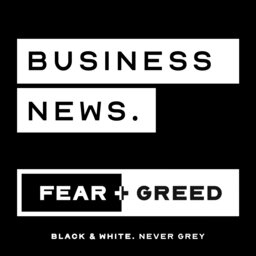Interview: DEI is in disarray. Is it time for a tough conversation?
The Trump administration has made far-reaching decisions about DEI (Diversity, Equity and Inclusion) programs, affecting hiring and employment in government departments and private companies.
Maud Lindley, founding director of Serendis Leadership, spent years in senior roles at investment banks before starting her leadership advisory and working with executives at major international companies. She joins Sean Aylmer in the studio to talk about the closed-door conversations she's been privy to regarding DEI programs. And while she is opposed to the way the Trump administration is handling DEI, she says it might be time for a change anyway.
 FEAR & GREED | Business News
FEAR & GREED | Business News


